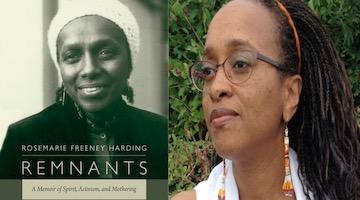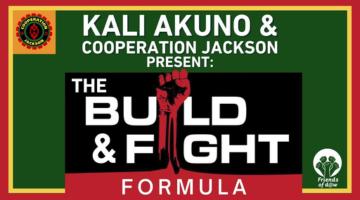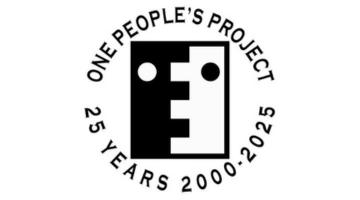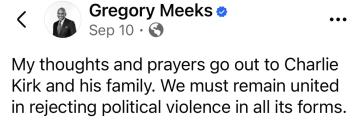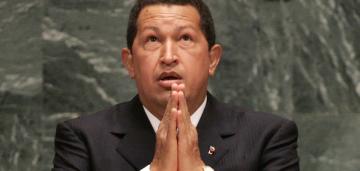The United States is not a union, it’s not exclusively of states, and for most of US history it hasn’t been limited to the Americas.
“Colonized people, those living under occupations, and those living in the shadow of military bases are often uncounted.”
In this series, we ask acclaimed authors to answer five questions about their book. This week’s featured author is Daniel Immerwahr. Immerwahr is an Associate Professor of History at Northwestern University. His book is How to Hide an Empire: A History of the Greater United States.
Roberto Sirvent: How can your book help BAR readers understand the current political and social climate?
Daniel Immerwahr: My book is about the parts of the United States beyond its mainland: territories, occupied zones, and military bases. It’s easy, from Chicago or Dallas, to overlook these parts. But what my book shows is that not only have millions of people lived in them (as millions do today), but that they’ve been on the front lines of history. World War II started with fighting in the U.S. territories—not just Pearl Harbor in Hawai‘i, but Guam, the Philippines, and Wake Island, too. It was in the territories that the United States saw the bloodiest fighting. The Global War on Terror also started with an overseas outpost of the United States, a military base in the Middle East.
The overseas parts of the United States continue to be on the front lines. In the past two years alone, four of the five inhabited U.S. territories have faced existential threats from hurricanes (Puerto Rico, the U.S. Virgin Islands), typhoons (the Northern Marianas), and nuclear threats (Guam). That will probably continue. These parts of the country face unique peril, and require the attention of everyone.
We’re also going to see a much more in-depth conversation unfold over the next few years about military bases. Currently the United States has hundreds of foreign bases (David Vine, who has offered the most careful accounting, puts the number at around eight hundred). All other countries combined, by contrast, maintain only around thirty foreign bases. With the longstanding presumptions of U.S. foreign policy now being challenged by political figures on both the left and the right, the future of the U.S. basing structure is going to be in question.
What do you hope activists and community organizers will take away from reading your book?
I’m hoping folks will learn to see the United States differently. That they’ll recognize that it’s not just limited to the contiguous blob. In fact, that familiar shape of the United States that we imagine in our mental maps has only accurately captured the borders of the country for three years of its history.
Once you look at the whole United States instead of focusing solely on the U.S. mainland, you start asking a whole new set of questions. You start wondering why millions of U.S. nationals—the ones who live in the territories—are deprived of the protection of the Constitution, why they lack meaningful federal representation, why they can’t vote for president. You ask why the United States maintains hundreds of outposts in foreign countries.
Seeing the United States in full also raises new possibilities. The history of what I call the “Greater United States” (a term used around the turn of the twentieth century) is a dynamic history. U.S. borders have been in motion throughout the twentieth century. There is nothing fixed about the shape of this country. And there’s no reason to assume that its current shape and configuration is set in place and can’t be changed. I’d love to see activists and organizers asking much more probing questions about the persistence of U.S. empire today.
We know readers will learn a lot from your book, but what do you hope readers will un-learn? In other words, is there a particular ideology you’re hoping to dismantle?
The title of my book is How to Hide an Empire, and I named it that because there is a long history of mainlanders not seeing the overseas parts of their own country. The reason is that the country as shown to inhabitants of the mainland (like me—I’m from Pennsylvania) is usually a strategically cropped family photo, with some folks cropped out of the shot. Learning to see the true territorial extent of the United States is going to require some new habits of mind.
One is how we refer to the country in general. It’s common for mainlanders to think that the “United States” refers just to the states (plus DC). Newscasters will frequently describe moving from Puerto Rico to the mainland as “immigration,” suggesting that Puerto Rico is a foreign country. Or when Hurricane Irma struck first the U.S. Virgin Islands and then the mainland, weather forecasters spoke of it hitting first the islands and then approaching “the United States,” as if St. Croix, St. John, and St. Thomas weren’t parts of the country.
Unlearning those habits of mind means seeing some fundamental parts of the country differently. It means looking beyond the “logo map,” that familiar silhouette of the country as it appears in most people’s minds. It means noticing that most maps of the country show all the states but not Puerto Rico. It means noticing that the census statistics about the United States—what the biggest cities are, how long people live, the urban/rural breakdown—have consistently been statistics about the mainland alone, plus Hawai‘i and Alaska only after they became states. It means noticing that the flag has a star for every state but nothing for the territories. It means noticing that the name of the country itself is inaccurate. It’s not a union (which suggests all parties entered voluntarily, like a marriage), it’s not exclusively of states, and for most of U.S. history it hasn’t been limited to the Americas.
Who are the intellectual heroes that inspire your work?
One book that struck me in my research was a little-read book by W. E. B. Du Bois called Color and Democracy from 1945. It’s sort of like The Souls of Black Folk but for colonialism. Du Bois even begins each chapter with a snippet of folk song, as he does for The Souls of Black Folk.
In that book, Du Bois tries to take the measure of empire. He writes with enormous frustration about the ways in which imperial powers have made it hard to get statistics and basic information about their colonies. He tries to bring these peripheral places in the world—which actually account for a huge portion of the human population—into the light. One thing Du Bois does in that book is to simply count up colonized populations. When he does, he reveals something which I think might still be striking to readers today: that on the eve of the Second World War, the United States had the fifth-largest empire by population, containing tens of millions of colonized subjects. As it turns out (this is my calculation, not his, but I think it’s in the spirit), if you lived in the United States at that time—anywhere in the country, not necessarily the mainland—you were more likely to be colonized than black by odds of about three to two. That’s an astounding thing to contemplate, because it reveals just how huge colonialism has been as a form of subordination in U.S. history.
I dedicate my book to “the uncounted,” and I mean that in two senses. Colonized people, those living under occupations, and those living in the shadow of military bases are uncounted in the sense that getting accurate head counts of them can be difficult. But it also means that, in so many ways, they haven’t “counted” for leaders in Washington. Following Du Bois, I want that to change.
In what way does your book help us imagine new worlds?
I hope that the book can help readers see not a “new” world but parts of the world that have been there all along, though too often ignored. For too long, U.S. history has been presented to readers as a truncated history, one that shows only parts of the country.
To get a sense of why this matters, consider the story of Cornelius Rhoads, a Harvard-trained doctor working for the Rockefeller Institute who went to San Juan in the 1930s to study anemia. When he got there, he started doing things he’d never have gotten away with in a hospital in Cambridge, Massachusetts. He intentionally refused to treat some of his patients to see what would happen. He purposefully induced diseases in others, again to see what would happen. He described his patients as “experimental animals.” And then he wrote a letter to a Boston colleague, in which he claimed to have outright murdered eight of his patients as part of a desired campaign to wipe the island free of Puerto Ricans.
It’s not entirely clear if Rhoads actually did kill eight of his patients, or whom he killed if so (patients in the hospital did die, but it’s a hospital, so that happens regularly). Nevertheless, here’s what’s amazing. He faced virtually no consequences. He left for the mainland. The colonial government in Puerto Rico ran an investigation, but it destroyed more incriminating evidence. Rhoads was not only not fired, but he became the vice president of the New York Academy of Medicine. Then he became, during World War II, a colonel in the army, where he was the chief medical officer overseeing chemical weapons tests on tens of thousands of uniformed men. These men had toxic agents applied to their skin, they were put in gas chambers (with protective gear on), and they were gassed by planes in the field while staging mock battles. Many of them endured lifelong health complications. And a lot of them were Puerto Ricans.
Rhoads also faced no punishment from this. Rather, he was given a medal. And then he took what he learned from these chemical weapons experiments and became the first director of the Sloan-Kettering Institute, turning himself into one of the pioneers of chemotherapy. For decades, Rhoads was celebrated in the United States as medical hero—he was on the cover of Time magazine, even. But because what happened in Puerto Rico stayed in Puerto Rico, it wasn’t until the twenty-first century that mainland doctors learned of Rhoads’s full legacy.
Roberto Sirvent is Professor of Political and Social Ethics at Hope International University in Fullerton, CA. He is co-author, with fellow BAR contributor Danny Haiphong, of the new book, American Exceptionalism and American Innocence: A People’s History of Fake News—From the Revolutionary War to the War on Terror.
COMMENTS?Please join the conversation on Black Agenda Report's Facebook page at http://facebook.com/blackagendareportOr, you can comment by emailing us at comments@blackagendareport.com










